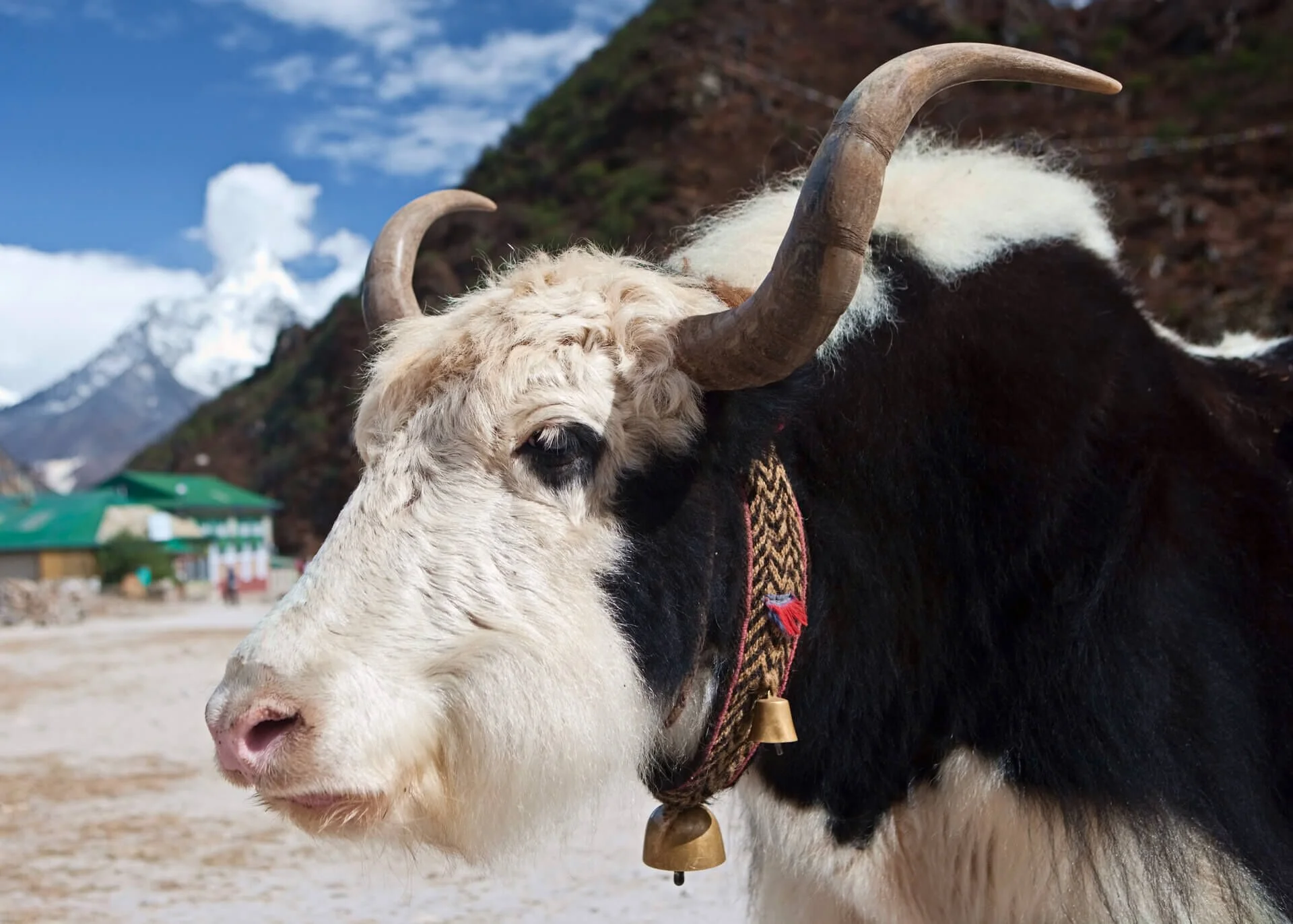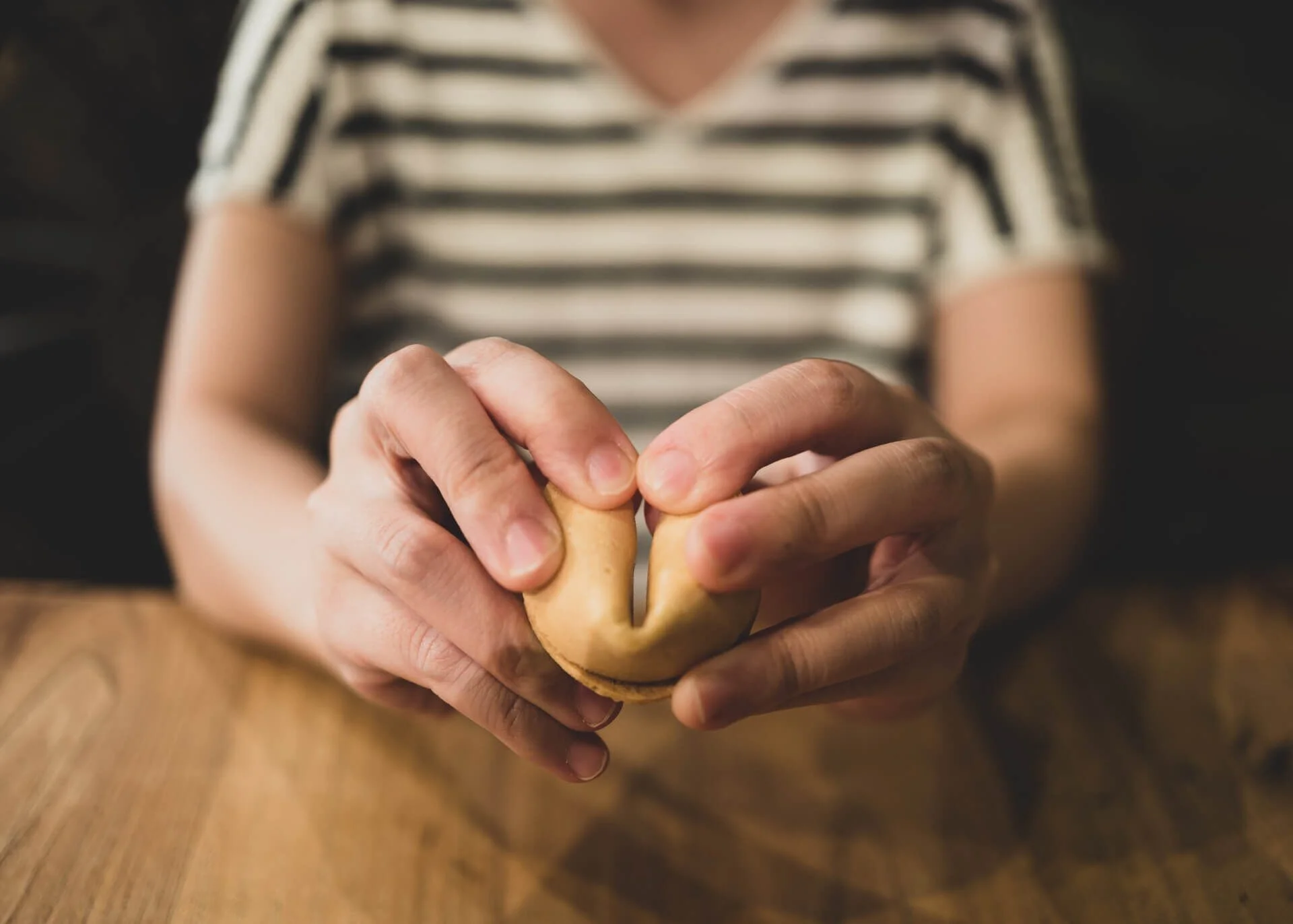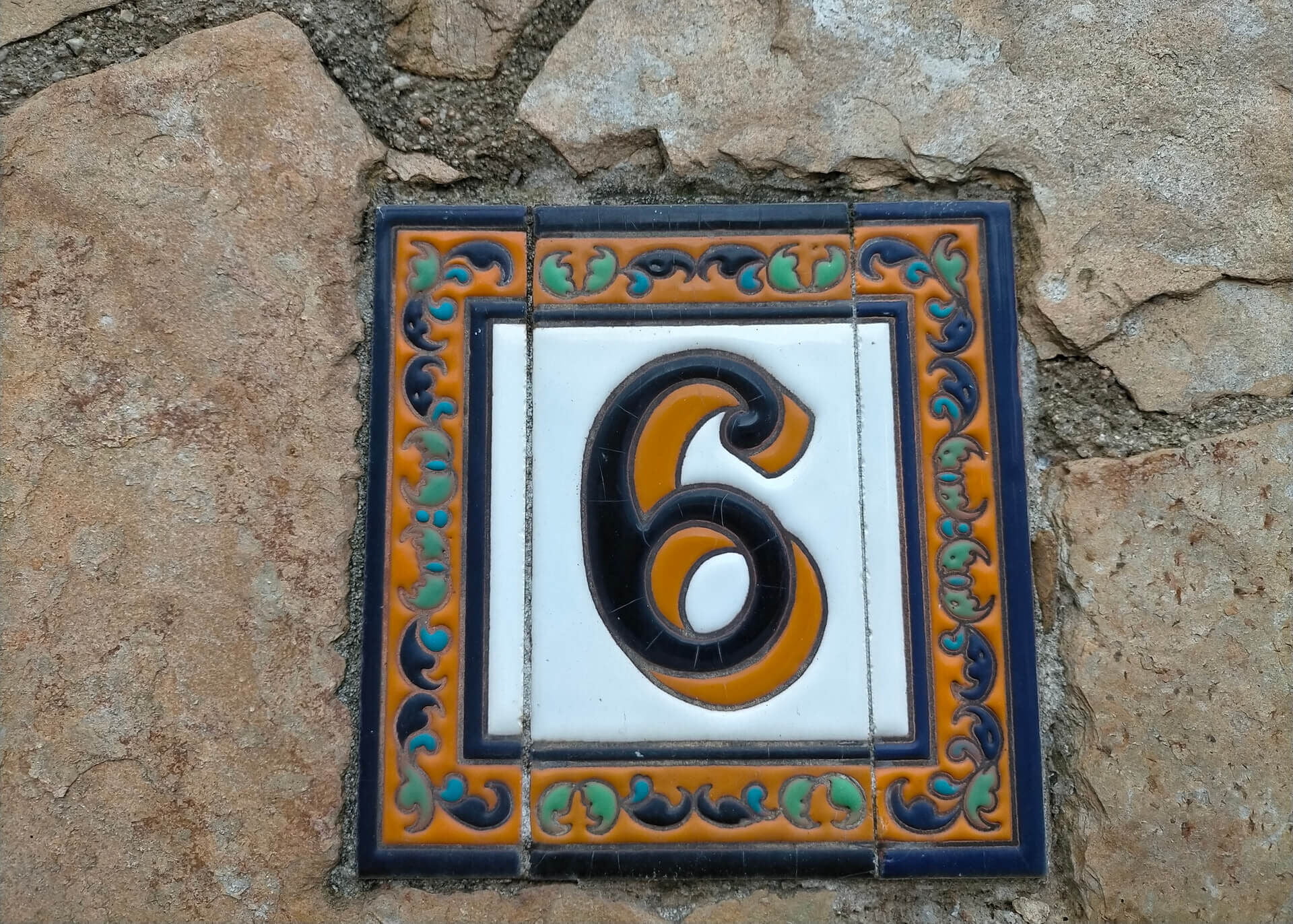18 Chinese Tongue Twisters to Test Your Pronunciation

Before you continue reading this blog post, you’ll need to answer one question: How much wood would a woodchuck chuck if a woodchuck could chuck wood?
Now, let’s try something similar, only this time in Mandarin Chinese. If you can’t wrap your head around the sheer idea of Chinese tongue twisters, don’t worry — you are not alone. We are here to guide you through the marvelous world of tongue twisters, ranging from easy and silly to educational and downright impossible.
Up for a challenge? Let’s learn a few Mandarin tongue twisters that will test your wits and patience!
Easy Chinese tongue twisters
Practicing Chinese tongue twisters is a great way to improve your vocabulary and Chinese pronunciation. Now, if Peter Piper still gives you trouble, perhaps it’s best to start with something less challenging. So we’ve chosen a few simple tongue twisters that are perfect for beginners and second language learners.
If you are new to learning Chinese tongue twisters, romanized and simplified versions can help you pronounce, understand, and memorize various tones. We’ve included Chinese tongue twisters with pinyin and an English translation.
1. 四是四 – Sì shì sì
四 是 四,十是十,十 四 是 十四,四十是四十,四十 四 是 四十四。
sì shì sì, shí shì shí, shí sì shì shí sì, sì shí shì sì shí, sì shí sì shì sì shí sì.
Four is four, ten is ten, fourteen is fourteen, forty is forty, forty-four is forty-four.
“Four is four” is one of China’s most common beginner-friendly tongue twisters. Short and sweet, this tongue twister allows you to practice the s and sh sounds and the second and fourth tones.
If your head hurts just by looking at the pinyin—don’t worry. That’s a sign that you’re only human. For twisters like this, it would be better to focus on the meaning and translation first. You could also try to record yourself to hear how you speak and pronounce certain words.

2. 妈妈骑马 – Māma qí mǎ
妈妈骑马。马慢,妈妈骂马。
māma qí mǎ. mǎ màn, māma mà mǎ.
Mother rides a horse. The horse is slow, and the mother scolds the horse.
Another popular one, “Mother rides a horse,” is probably the first tongue twister Mandarin learners learn once they start studying Chinese. It’s simple and easy even for the students at the beginning of their studies.
This tongue twister tests your pronunciation of the m consonant and helps you pick up the different tones. It also helps you distinguish between your mom and a horse, so you wouldn’t accidentally mix up the two.

3. 红凤凰,粉凤凰 – Hóng fèng huáng, fěn fèng huáng
红凤凰,粉凤凰,粉红凤凰。
hóng fèng huáng, fěn fèng huáng, fěn hóng fèng huáng。
Red phoenix, pink phoenix, pink-red phoenix.
If those pesky vowels eng, ong, uang have been giving you trouble, then “Red phoenix, pink phoenix” is the perfect Chinese tongue twister for you! Not only will you master those vowels in no time, but you’ll also learn a couple of different color names!

4. 老师是不是四十四的? – Lǎo shī shì bú shì sì shí sì de?
老师是不是四十四的?
lǎo shī shì bú shì sì shí sì de?
Is the teacher 44 years old?
Want to offend your obviously-young-fresh-from-grad-school teacher? We got just the thing! This question-turned-twister is an ideal choice for practicing your sh sounds and making unsuspecting teachers feel uncomfortable.

5. 西施 – Xī shī
西施死时四十四。
Xī Shī sǐ shí sì shí sì.
Xi Shi died at 44.
Although quite morbid at first glance, this Mandarin Chinese tongue twister has an interesting backstory. Xi Shi was one of the “Four Great Beauties” of China and was responsible for the downfall of the Kingdom of Wu. According to legend, her beauty was so enthralling that fish, upon seeing her, would forget how to swim.
It seems that Xi Shi continues to befuddle the masses centuries later. However, this time her weapon of choice is the dreaded shi sound.

6. 吃葡萄 – Chī pú táo
吃葡萄不吐葡萄皮,不吃葡萄倒吐葡萄皮。
chī pú táo bù tǔ pú táo pí, bù chī pú táo dào tǔ pú táo pí。
Eat grapes but don’t spit out the grape skin, don’t eat grapes but spit out the grape skin.
Some tongue twisters tell a story, others try to impart some wisdom, and then there are those whose sole purpose is to confuse you. In other words, “Some tongue twisters just want to watch the world burn.” We’ll let you guess in which category “Eat grapes” belongs.
This one tackles a few different things, such as the consonants ch, p, and b, as well as all four tones. “Eat grapes” is a bit more challenging but also extremely fun!

7. 天津和北京 – Tiānjīn hé Běijīng
天津和北京,津京两个音。一是前鼻音,一是后鼻音。如果分不清,请你认真听。
Tiānjīn hé Běijīng, jīn jīng liǎng gè yīn。 yī shì qián bí yīn, yī shì hòu bí yīn。 rú guǒ fèn bú qīng, qǐng nǐ rèn zhēn tīng。
Tianjin and Beijing, jin and jing, are two different sounds. One is the sound from the front nasal, and the other is from the back nasal. So if you can’t distinguish them, please listen carefully.
What makes “Tianjin and Beijing” so special is that the text explains how to pronounce the words! The jin sound is produced in the front nasal, while the jing sound comes from the back nasal. Now you try! Notice the difference between the two?
How cool is that?

Tricky Chinese tongue twisters
Let’s step it up a notch, shall we? Tongue twisters in Chinese are pretty much the same as tongue twisters in English, only…much harder. If you want to up your game, you should try your hand at some of these tricky Chinese tongue twisters.
These Chinese tongue twisters in English and Mandarin will allow you to take your studies to higher levels. So, up for a challenge? Buckle up!
8. 扁担 – Biǎn dan
扁担长,板凳宽,扁担要绑在板凳上,板凳不让扁担绑在板凳上,扁担非要绑在板凳上。
biǎn dan cháng, bǎn dèng kuān, biǎn dan yào bǎng zài bǎn dèng shàng, bǎn dèng bù ràng biǎn dan bǎng zài bǎn dèng shàng, biǎn dan fēi yào bǎng zài bǎn dèng shàng。
A bamboo pole is long, and the bench is wide. The bamboo pole was bound to the bench. The bench did not allow the pole to be bound to it, but the pole insisted on being bound to the bench.
If you want to play around with your an, ang, eng sounds, then “Bamboo poles” is a good tongue twister. It also allows you to get familiar with the d and b consonants fun and engaging.

9. 颜圆眼和颜眼圆 – Yán Yuányǎn hé Yán Yǎnyuán
村前有个颜圆眼。村后有个颜眼圆。不知颜圆眼的眼圆还是颜眼圆的眼圆?
cūn qián yǒu gè Yán Yuányǎn。 cūn hòu yǒu gè Yán Yǎnyuán. bù zhī Yán Yuányǎn de yǎn yuán hái shì Yán Yǎnyuán de yǎn yuán?
In front of the village is Yan Yuanyan. Behind the village is Yan Yanyuan. Don’t know if Yan Yuanyan’s eyes are rounder or Yan Yanyuan’s eyes are rounder?
Don’t let yourself be confused by this sneaky tongue twister. The best way to understand the meaning behind this short story is to focus on the translation and the pinyin. After you practice saying it a couple of times, you’ll discover that it’s not as difficult as it first seems.
The biggest challenge is getting the hang of all yan and yuan words, but you’ll finally be in the clear once you figure that out.

10. 鸟岛 – Niǎo dǎo
鸟岛是岛,鸟岛有鸟。鸟岛的鸟多得数不清了。要想到鸟岛,一定要爱鸟。你不爱小鸟就别到鸟岛。
niǎo dǎo shì dǎo, niǎo dǎo yǒu niǎo. niǎo dǎo de niǎo duō de shǔ bù qīng le. yào xiǎng dào niǎo dǎo, yī dìng yào ài niǎo. nǐ bú ài xiǎo niǎo jiù bié dào niǎo dǎo。
Bird Island is an island; Bird Island has birds. The birds on Bird Island are countless. If you wish to go to Bird Island, you must love birds. If you don’t love small birds, don’t go to Bird Island.
Although this tongue twister won’t be winning any poetry competitions any time soon, there are a few things we can learn from it.
For instance, this Chinese tongue twister puts the biggest focus on the vowels and the sounds ao, iao, and ou. But, aside from that, it teaches us that it would be best to avoid Bird Island if we don’t like the winged creatures. And who can argue with that logic?

11. 牛郎恋刘娘 – Niú láng liàn Liú niáng
牛郎恋 刘 娘,刘 娘 念牛郎,牛郎牛年恋 刘 娘,刘娘年年念牛郎,郎恋娘来娘恋郎,念娘恋郎念郎恋娘,念恋娘郎,绕不晕你算我白忙。
niú láng liàn Liú niáng, Liú niáng niàn niú láng, niú láng niú nián liàn Liú niáng, Liú niáng nián nián niàn niú láng, láng liàn niáng lái niáng liàn láng, niàn niáng liàn láng niàn láng liàn nián, niàn liàn niáng láng rào bù yūn nǐ suàn wǒ bái máng。
Ox herder boy loves Lady Liu, Lady Liu obsesses over the ox herder boy; Ox herder boy loves Lady Liu in the year of the ox, Lady Liu obsesses over the ox herder boy in the year of the ox; Boy loves the lady, and the lady obsesses over the boy; Obsessing lady loves the boy, and an obsessing boy loves the lady; Obsessing, loving, lady, boy. If you aren’t dizzy by now, I’ve wasted my effort.
A gripping tale of love, passion, obsession, and…oxen? This beautiful story about the Ox herder boy and his love for Lady Liu is among the more popular Chinese tongue twisters. Its length and the use of various nian, lian, niang, lang words certainly earned it its place in the “tricky” category.

12. 白庙白猫 – Bái miào bái māo
山上有座白庙地上有只白猫白发老公公掉了一顶白帽白猫叼着白帽跑进一白庙。
shān shàng yǒu zuò bái miào dì shàng yǒu zhǐ bái māo bái fà lǎo gōng gōng diào le yī dǐng bái mào bái māo diāo zhe bái mào pǎo jìn yī bái miào。
There is a white temple on the mountain. There is a white cat on the ground. The white-haired old man lost his white hat. The white cat ran into a white temple with the white hat in its mouth.
Another fun Mandarin twister to challenge your speaking speed and skills. In just one sentence, this tongue twister allows you to practice the consonants zh and sh and learn the difference between a cat, a hat, and a temple.

Hardest Chinese tongue twisters
Still not giving up? Impressive. Well, do we have a treat for you!
Welcome to the final boss of Chinese tongue twisters. These are some of the most challenging Chinese tongue twisters known to man. They are so tricky that even native Mandarin speakers dread them. They will hurt your eyes, brain, jaw, and pride. Moreover, these tongue twisters are pure evil in written form.
Continue reading at your own risk. You’ve been warned.
13. 知道就说知道 – Zhī dào jiù shuō zhī dào
知道就说知道,不知道就说不知道,不要 知道 说 不知道,也 不要 不知道 说 知道,你 知道 不知道?
zhī dào jiù shuō zhī dào, bù zhī dào jiù shuō bù zhī dào, bù yào zhī dào shuō bù zhī dào, yě bù yào bù zhī dào shuō zhī dào, nǐ zhī dào bù zhī dào?
If you know, just say you know. If you don’t know, just say you don’t know. You shouldn’t know and say you don’t know. And you shouldn’t know and say you do know. You know?
“If you know, say you know” is one of those things you’d expect to hear from an old kung-fu master as he teaches you his ancient techniques so you could set out into the world and avenge your family. Or, you know, something you’d read in a fortune cookie.
That aside, this tongue twister is not beginner-friendly and will require plenty of practice and patience. However, once you grasp the meaning behind the twister, it’ll only be a matter of time before you get the hang of the pronunciation.

14. 八百标兵 – Bābǎi biāobīng
八百標兵奔北坡炮兵並排北邊跑炮兵怕把標兵碰標兵怕碰炮兵砲。
bābǎi biāobīng bēn běi, pō pàobīng bìngpái běibian pǎo. pàobīng pà bǎ biāobīng pèng, biāobīng pà pèng pàobīng pào。
Eight hundred spearmen rush towards the north hill slope. Artillery soldiers abreast in rows run towards the north. Artillery soldiers are afraid to bump into the spearmen. Whereas the spearmen are scared to bump into the artillery’s bomb.
Another one in the line of expert-level Chinese tongue twisters, “800 soldiers,” uses advanced vocabulary and a lot of p and b sounds paired with different tones. This one is perfect for those looking for something challenging yet not overly long.
Also, this Chinese tongue twister is a great choice if you’re a history buff and want to practice vocabulary.

15. 是十石狮子 – Shì shí shí shīzi
石室诗 士 施 氏 嗜 狮,誓食十狮。氏时时适市视狮。十时,适十狮适市。是时,适施氏适市。氏视是十狮,恃矢势,使是十狮逝世。氏 拾 是 十 狮 尸,适石室。石室湿,氏 使 侍 拭 石室。石室拭,氏始试食是十狮。食时,始识 是 十 狮 尸,实十石狮尸。试释是事。
Shí shì shī shì Shī Shì, shì shī, shì shí shí shī. Shì shí shí shì shì shì shī. Shí shí, shì shí shī shì shì. Shì shí, shì Shī Shì shì shì. Shì shì shì shí shī, shì shǐ shì, shǐ shì shí shī shì shì. Shì shí shì shí shī shī, shì shí shì. Shí shì shī, Shì shǐ shì shì shí shì. Shí shì shì, Shì shǐ shì shí shì shí shī. Shí shí, shǐ shí shì shí shī shī, shí shí shí shī shī. Shì shì shì shì.
In a stone den, a poet called Shi Shi, a lion addict had resolved to eat ten lions. He often went to the market to look for lions. At ten o’clock, ten lions had just arrived at the market. At that time, Shi had just arrived at the market. He saw those ten lions and, using his trusty arrows, caused the ten lions to die. He brought the corpses of the ten lions to the stone den. The stone den was damp. He asked his servants to wipe it. After the stone den was wiped, he tried to eat those ten lions. When he ate, he realized that these ten lions were, in fact, ten stone lion corpses. Try to explain this matter.
Considered one of the most challenging Chinese tongue twisters, the “Ten stone lions” is basically the bigger, much meaner cousin of “Four is four.” The author of the poem is Zhào Yuán Rèn 趙元任, a famous Chinese linguist, scholar, and poet.
This poem, also called “Lion-eating poet in the stone den,” is an exceptional example of constrained writing. It is a literary technique bound by certain limitations—in this case, the one-syllable article. The poem uses 92 characters, all of which are different forms of the word shi.
Mind-boggling and extraordinary, the “Ten stone lions” is nothing short of a masterpiece. To this day, the tongue twister manages to befuddle and challenge even the most experienced Mandarin Chinese speakers.

16. 喇嘛和哑巴 – Lǎma hé yǎbā
打南边来了个哑巴,腰里别了个喇叭;打北边来了个喇嘛,手里 提了个獭 犸。提着獭犸的喇嘛要拿獭犸换别着喇叭的哑巴的喇叭;别着喇叭的哑巴不愿拿喇叭换提着獭犸的喇嘛的獭犸。不知是别着喇叭的哑巴打了提着獭犸的喇嘛一喇叭;还是提着獭犸的喇嘛打了别着喇叭的哑巴一獭犸。喇嘛回家炖獭犸,哑巴嘀嘀哒哒吹喇叭。
dǎ nán biān lái le gè yǎ bɑ, yāo lǐ bié le gè lǎ bɑ;dǎ běi bian lái le gè lǎ mɑ, shǒu lǐ tí le gè tǎ mǎ. tí zhe tǎ mǎ de lǎ mɑ yào ná tǎ mǎ huàn bié zhe lǎ bɑ de yǎ bɑ de lǎ bɑ;bié zhe lǎ bɑ de yǎ bɑ bù yuàn ná lǎ bɑ huàn tí zhe tǎ mǎ de lǎ mɑ de tǎ mǎ. bù zhī shì bié zhe lǎ bɑ de yǎ bɑ dǎ le tí zhe tǎ mǎ de lǎ mɑ yī lǎ bɑ;hái shì tí zhe tǎ mǎ de lǎ mɑ dǎ le bié zhe lǎ bɑ de yǎ bɑ yī tǎ mǎ. lǎ mɑ huí jiā dùn tǎ mǎ ,yǎ bɑ dī dī dā dā chuī lǎ bɑ。
From the north comes a mute, carrying a trumpet at his waist. From the south comes a monk, holding a fish in his hand. The monk holding a fish wants to trade his fish for a trumpet, with the mute carrying a trumpet. The mute carrying a trumpet doesn’t want to trade his trumpet with the monk holding the fish. Not only does the mute who is carrying a trumpet hit the monk who is holding a fish with his trumpet, but the monk who is carrying a fish also hits the mute who is carrying a trumpet. The monk goes home and stews his fish. The mute plays his trumpet.
Contrary to what you might think, this Chinese tongue twister has nothing to do with llamas! In fact, it’s a very intriguing story about a quarrel between a monk and a mute.
“The monk and the mute” has everything—an interesting plot, action, conflict, and of course, a peaceful resolution. Besides that, the tongue twister is riddled with some heavy vocabulary and is quite long, making it fairly difficult.
We advise you to consult the translation before pronouncing the whole thing in Chinese. Unlike English, where the pronunciation is pretty straightforward, Mandarin Chinese will challenge your ability to balance tones, consonants, and mouth shapes.

17. 老六放牛 – Lǎo liù fàng niú
柳林镇有个六号楼,刘老六住在六号楼,有一天,来了牛老六,牵了六只猴,来了侯老六,拉了六头牛,来了仇老六,提了六篓油,来了尤老六,背了六匹绸,牛老六,侯老六,仇老六,尤老六,住上刘老六的六号楼,半夜里,牛抵猴,猴斗牛,撞倒了仇老六的油,油坏了尤老六的绸,牛老六帮仇老六收起油,侯老六帮尤老六洗掉绸上油,拴好牛,看好猴,一同上楼去喝酒。
Liǔlín zhèn yǒu gè liù hào lóu, Liú Lǎoliù zhù zài liù hào lóu。 yǒu yītiān, láile Niú Lǎoliù, qiānle liù zhǐ hóu, láile Hóu Lǎoliù, lāle liù tóu niú, láile Chóu Lǎoliù, tíle liù lǒu yóu, láile Yóu Lǎoliù, bèile liù pǐ chóu。 Niú Lǎoliù, Hóu Lǎoliù, Chóu Lǎoliù, Yóu Lǎoliù, zhù shàng liú lǎo liù de liù hào lóu。 bànyè lǐ, niú dǐ hóu, hóu dòuniú, zhuàng dǎo le Chóu Lǎoliù de yóu。 yóu huàile Yóu Lǎoliù de chóu。 Niú Lǎoliù bāng Chóu Lǎoliù shōu qǐ yóu, Hóu Lǎoliù bāng Yóu Lǎoliù xǐ diào chóu shàng yóu。 shuān hǎo niú, kànhǎo hóu, yītóng shàng lóu qù hējiǔ。
Liulin Town has Building No. 6. Liu Laoliu lives in Building No. 6. One day, Niu Laoliu came to Liulin Town with six monkeys, Hou Laoliu came to Liulin Town with six cows, Chou Laoliu came to Liulin Town and brought six baskets of oil, You Laoliu came to Liulin Town and carried six silks. Niu Laoliu, Hou Laoliu, Chou Laoliu, and You Laoliu lived in Building No.6 of Liulin Town. In the middle of the night, the bull hit the monkey, and the monkey fought the bull and knocked down Chou Laoliu’s oil. The oil damaged You Laoliu’s silk. Niu Laoliu helped Qiu Laoliu put away the oil, and Hou Laoliu helped You Laoliu wash off the silk and oil it. He tied up the bull, looked after the monkey, and went upstairs for a drink together.
Fun, smart, and challenging? This is our type of tongue twister!
The story follows the escapades of five men living in Liulin Town. It’s basically “Friends” with extra steps. The challenging part of this tongue twister lies in its length and the frequent use of similar-sounding words and syllables.
What’s interesting is that many Chinese tongue twisters rely on silly stories, which makes them much more appealing to English speakers. Practicing tongue twisters through interesting narration can help beginners, and advanced speakers learn more Chinese words, phrases, characters, and tones. It also improves speaking skills and pronunciation, which many Mandarin students struggle with.
The story of Liu Laoliu is just one of many tongue twisters in the Chinese language aimed at more experienced learners looking for a new challenge.

18. 司小四和史小世 – Sī Xiǎosì hé Shǐ Xiǎoshì
司小四和史小世,四月十四日十四时四十上集市,司小四买了四十四斤四两西红柿,史小世买了十四斤四两细蚕丝。司小四要拿四十四斤四两西红柿换史小世十四斤四两细蚕丝,史小世十四斤四两细蚕丝不换司小四四十四斤四两西红柿,司小四说我四十四斤四两西红柿可以增加营养防近视,史小世说我十四斤四两细蚕丝可以织绸织缎又抽丝。
Sī Xiǎo sì hé Shǐ Xiǎoshì, sì yuè shísì rì shísìshísì shí shàng jí shì。 Sī Xiǎosì mǎile sìshísì jīn sì liǎng xīhóngshì, Shǐ Xiǎoshì mǎile sìshí jīn sì liǎng xì cánsī。 Sī Xiǎosì yào ná sìshísì jīn sì liǎng xīhóngshì huàn Shǐ Xiǎoshì shísì jīn sì liǎng xì cánsī。 Shǐ Xiǎoshì shísì jīn sì liǎng xì cánsī bù huàn Sī Xiǎosì sìshísì jīn sì liǎng xīhóngshì。 Sī Xiǎosì shuō wǒ sìshísì jīn sì liǎng xīhóngshì kěyǐ zēngjiā yíngyǎng fáng jìnshì, Shǐ Xiǎoshì shuō wǒ shí sì jīn sì liǎng xì cánsī kěyǐ zhī chóu zhī duàn yòu chōu sī。
Si Xiaosi and Shi Xiaoshi went to the market at 14:40 on April 14th. Si Xiaosi bought forty-four catties and four taels of tomatoes, and Shi Xiaoshi bought fourteen catties and four taels of fine silk. Si Xiaosi wanted to exchange forty-four catties and four taels of tomatoes for Shi Xiaoshi’s fourteen catties and four taels of fine silk. Shi Xiaoshi didn’t exchange forty-four catties and four taels of tomatoes with Si Xiaosi. Si Xiaosi said my forty-four catties and four taels of tomatoes can increase nutrition and prevent myopia. Shi Xiaoshi said my fourteen catties and four taels of fine silk can weave satin and silk.
If you’ve attempted 四是四 sì shì sì and found it too easy, then perhaps you should give this Chinese tongue twister a try. Although it works on a similar principle, focusing on si and shi sounds, this tongue twister takes it to the next level by introducing many new vocabulary words. It also naturally incorporates all four Chinese tones and uses combinations of the same phonetic sounds but with different tones.
This makes it not only one of the most challenging Chinese tongue twisters in China but also an excellent choice for mastering your Mandarin pronunciation skills. If you want to impress your friends, then learning Chinese tongue twisters such as this will help you pronounce certain words and tones.
The more you practice and speak, the easier it will be to master even the trickiest tongue twisters on this list. Practicing popular tongue twisters will improve your speed, intonation, pronunciation, and vocabulary and help you form words and sentences. This is true for all languages, not just Mandarin Chinese.








